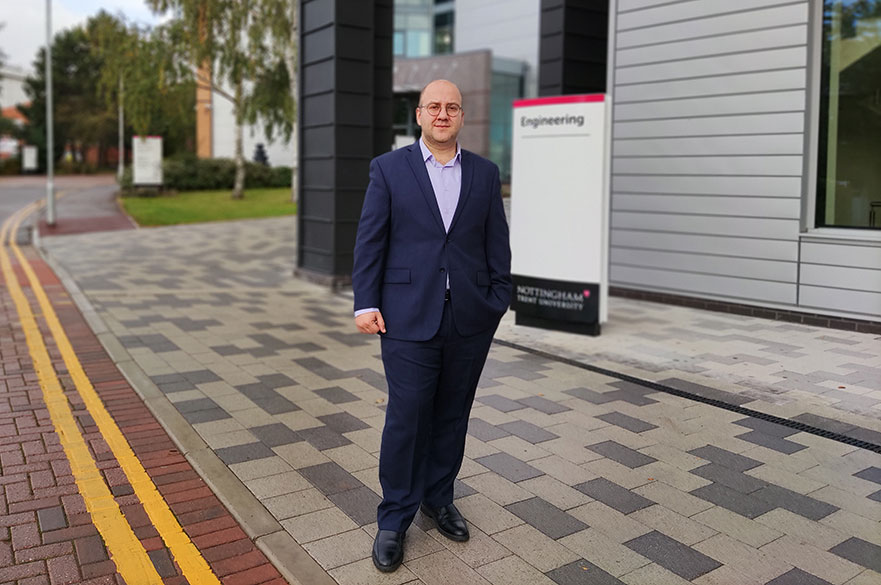NTU awarded Future Leaders Fellowship by UK Research and Innovation
Dr Mohsen Rahmani, part of the Department of Engineering in NTU’s School of Science and Technology has been awarded a £1.2 million Future Leaders Fellowship
By Becky Timmins | Published on 15 October 2020
Categories: Research; School of Science and Technology;

Dr Mohsen Rahmani has been awarded a £1.2 million Future Leaders Fellowship by UK Research and Innovation (UKRI). Science Minister Amanda Solloway has today announced the latest next wave of individuals to receive funding over an initial four-year period through this flagship scheme.
The highly competitive scheme, launched by the Secretary of State in 2018, is a £900 million fund that supports world-class researchers across the UK by enabling them to tackle ambitious research and innovation challenges. Based in the Department of Engineering in NTU’s School of Science and Technology, Dr Rahmani will develop new technology for seeing the near-infrared light, which is naturally invisible to our eyes.
As one of the fourth round of recipients, Dr Rahmani will be part of a new cohort of research and innovation leaders. Awardees each receive between £400,000 and £1.5 million to work on difficult global challenges. Future Leaders Fellows also benefit from networking across the UK’s most talented researchers and innovators from different disciplines and sectors, putting them at the forefront of modern, interdisciplinary research.
Dr Rahmani introduced the importance of his project: “Our human eyes only see the visible light, which is a tiny portion of the entire electromagnetic spectrum - about 0.0035%. Among all invisible lights around us, the near-infrared range is of particular interest because of its broad application, for example, for medical diagnosis, food quality control, autonomous vehicles, and night-vision.”
This Fellowship enables him to develop new technology for seeing both visible and near-infrared lights, simultaneously, via engineered glass surfaces such as goggles, house windows, and car windscreens. Therefore, the information that is currently invisible to the naked eye will become visible - the ripeness of fruits and species health. “This technology will also enable us to see invisible objects in the dark. Imagine no light pollution and a massive reduction in greenhouse gases associated with a world where the lighting was not required to see at night, particularly in areas with low-levels of urban and road illuminations”, Dr Rahmani commented.
He continued: “The concept of this technology was proved when I was at the Australian National University (ANU). The unique support of the UKRI Future Leaders Fellowship and the outstanding platform at NTU will enable me to develop this technology in the UK, in close collaborations with other world-leading universities, namely ANU, the National University of Singapore and Imperial College London. Moreover, the industrial prototyping will be done in collaboration with UK leading companies QinetiQ, Horiba Mira, and Flexotronix.”
Professor Nigel Wright, NTU’s Deputy Vice-Chancellor – Research and Enterprise, commented: “It’s fantastic to see Mohsen win this prestigious award. It’s evidence of the excellence of Mohsen’s research and the potential for impact on society, both of which are emblematic of NTU’s research.”
Amanda Solloway said: “We are committed to building back better through research and innovation, and supporting our science superstars in every corner of the UK. By backing these inspirational Future Leaders Fellows, we will ensure that their brilliant ideas can be transferred straight from the lab into vital everyday products and services that will help to change all our lives for the better.”
UK Research and Innovation Chief Executive, Professor Dame Ottoline Leyser, commented: “The fellows announced today illustrate how the UK continues to support and attract talented researchers and innovators across every discipline to our universities and businesses, with the potential to deliver change that can be felt across society and the economy."